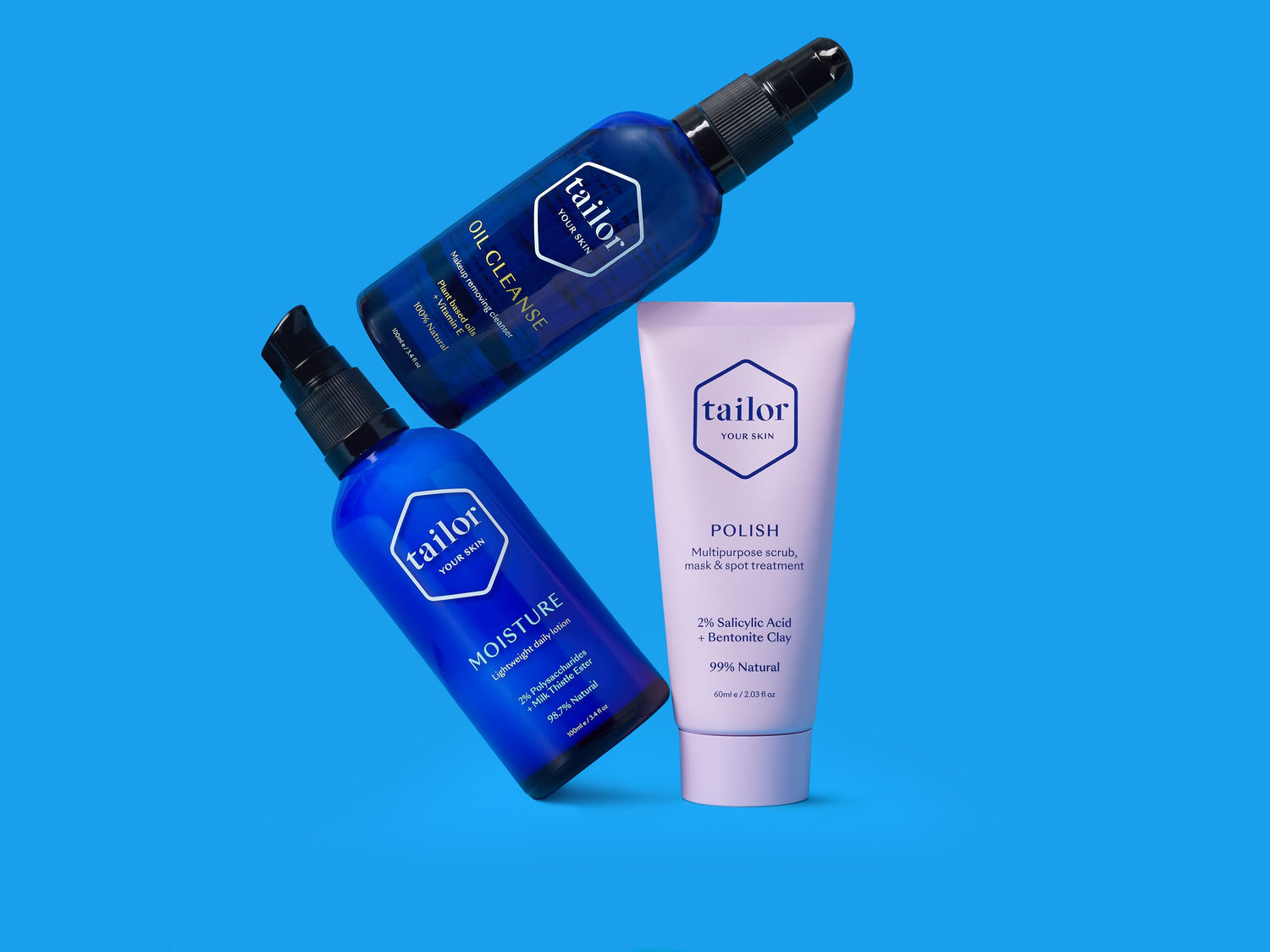At Tailor, we often get told that people love our products because they’re natural and “chemical free”. With this in mind, the following news might come as a shock to you; Tailor products are packed full of chemicals.
In fact, no skincare is chemical free, including natural skincare - if a brand claims this, you can file it under ‘greenwashing’ and spreading misinformation. Let’s take a look at which chemicals are in your skincare, which chemicals are actually good for your skin, and which ones you should avoid.

Does natural skincare contain chemicals?
First, let’s clarify what a chemical actually is. According to the Oxford Dictionary a chemical is, “a distinct compound or substance”. Which basically means, everything is a chemical or made from chemicals. You come into contact with chemicals on a daily basis, from washing your hands (chemical: water) to cooking dinner (chemical: olive oil).
That said, not all chemicals are created equal. There’s also no hard-and-fast rule for identifying which chemicals are good or bad for your skin - even some natural chemicals can be irritating for your skin and harmful to your health.
Below you’ll find a general guide to the nice and nasty chemicals to look out for. We’ve included both the common and INCI (International Nomenclature of Cosmetic Ingredients) name, as this is what you’ll often see in the ingredients list.
Remember - doing your own research on ingredients is key. Our go-to tools are the EWG guide or Paula’s Choice Ingredient Dictionary.
What chemicals are safe to use on your skin?
While we can’t give you an exhaustive list, we can tell you our favourite natural chemicals to look for in your skincare…
Oils, waxes and butters
These are nutritious ingredients in your skincare that feed, protect and moisturise your skin. Our favourites include;
- Corylus Americana/Avellana (hazelnut) Oil
- Cocos Nucifera (coconut) Oil
- Helianthus Annuus (sunflower seed) Oil
- Simmondsia Chinensis (jojoba) Seed Oil
- Vitis Vinifera (grape) Seed Oil
You can find nourishing oils in most Tailor products. We feature our favourites like sunflower seed oil (which is high in omega-6) in Oil Cleanse, and deeply moisturising jojoba oil in Renew and Illume.

Emulsifiers and gums
Oil and water are two ingredients that naturally repel each other, but are commonly found together in skincare. Emulsifiers and gums are the ‘glue’ that keep them bound together. Avoid common synthetic emulsifiers like PEGs, which can be petroleum derived and irritating to the skin, and instead look for:
- Cetearyl olivate from olives
- Hydrogenated lecithin
- Xanthan gum
All of your Tailor favourites avoid synthetic emulsifiers, instead we opt for natural emulsifiers like cetearyl olivate in Moisture, which also works to moisturise and soften the skin.

Emollients
When it comes to ingredients that make your skin feel silky smooth, ditch the mineral oil (find out why below), and opt for these natural alternatives:
- Glyceryl Stearate Citrate
- Silybum Marianum (milk thistle) Ethyl Ester
- Ricinus Communis (castor) Oil
- Along with the natural oils listed above
Natural preservatives
Without preservatives, your skincare would need to be one of two things: made with 100% oils, or kept in the fridge (but even then, it’s lifetime would be short! Like a maximum of 2 weeks). Preservatives have been vilified - and rightly so, for some nasty chemicals like parabens. However there are safe, natural alternatives. Look out for...
- Dehydroacetic acid
- Benzyl alcohol
- Sodium levulinate
- Sodium anisate
- Propanediol - preservative booster
In order for our natural formulations to last longer than a few days, we include natural preservatives such as benzyl alcohol in Hydrate and Polish. This common preservative is one of the least sensitizing, plus it smells pretty good too!

What chemicals are harmful for your skin?
Parabens
Parabens are cheap, common synthetic preservatives to prevent bacterial and fungal growth. BUT, parabens are known xenoestrogens, which mimic the hormone oestrogen. In women, excess oestrogen can result in increased risk of breast cancer tumours, as well as PMS, painful periods, headaches and weight gain.
Look out for these names to avoid parabens in your products;
- Methylparaben
- Propylparaben
- Isobutylparaben
- Butylparaben
- Ethylparaben
Synthetic fragrances
Listed as ‘fragrance’ or ‘parfum’, this ingredient can be pretty scary because it’s made up of...well, anything! There’s no regulations for brands to disclose what the fragrance used is made from. It could be 3 ingredients, or 100.
While fragrances can be naturally derived, brands will often state this in brackets to avoid any confusion. Tailor’s bespoke fragrance is crafted from a blend of essential oils and makes up 0.5% of the formula of Moisture and Renew to ensure it’s gentle for sensitive skin.
Mineral oil
Commonly found in lip balms and balm cleansers, mineral oil is a byproduct of petroleum and therefore isn’t ideal from an environmental standpoint. In addition to this, it doesn’t do too much for your skin - while it will protect your skin from dehydration, it’s not nourishing and feeding your skin like the natural oils, waxes and butters we recommended above.

When it comes to what you’re putting onto your skin, and ultimately into your body, a good rule of thumb is to opt for products with 100% natural ingredients.
Use this guide to help identify the nasty ingredients lurking in your skincare and other beauty products.
And remember: there’s no such thing as chemical free!
References
Darbre PD, Aljarrah A, Miller WR, Coldham NG, Sauer MJ, Pope GS. Concentrations of parabens in human breast tumours. J Appl Toxicol. 2004 Jan-Feb;24(1):5-13. doi: 10.1002/jat.958. PMID: 14745841.
Pinkas A, Gonçalves CL, Aschner M. Neurotoxicity of fragrance compounds: a review. Environ Res. 2017;158:342‐349. doi:10.1016/j.envres.2017.06.035
Petry, D. Bury, R. Fautz, M. Hauser, B. Huber, A. Markowetz, S. Mishra, K. Rettinger, W. Schuh, T. Teichert. Review of data on the dermal penetration of mineral oils and waxes used in cosmetic

